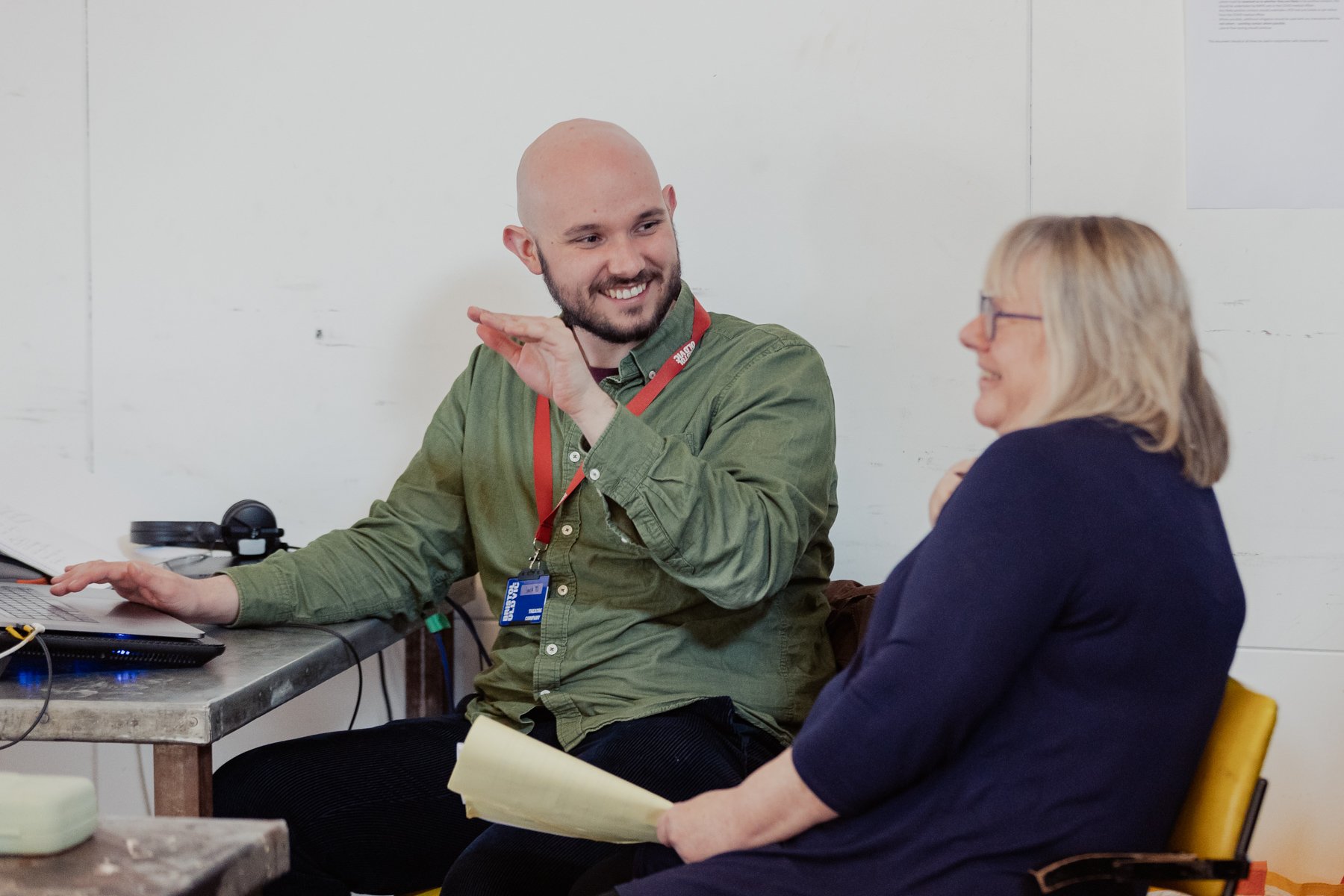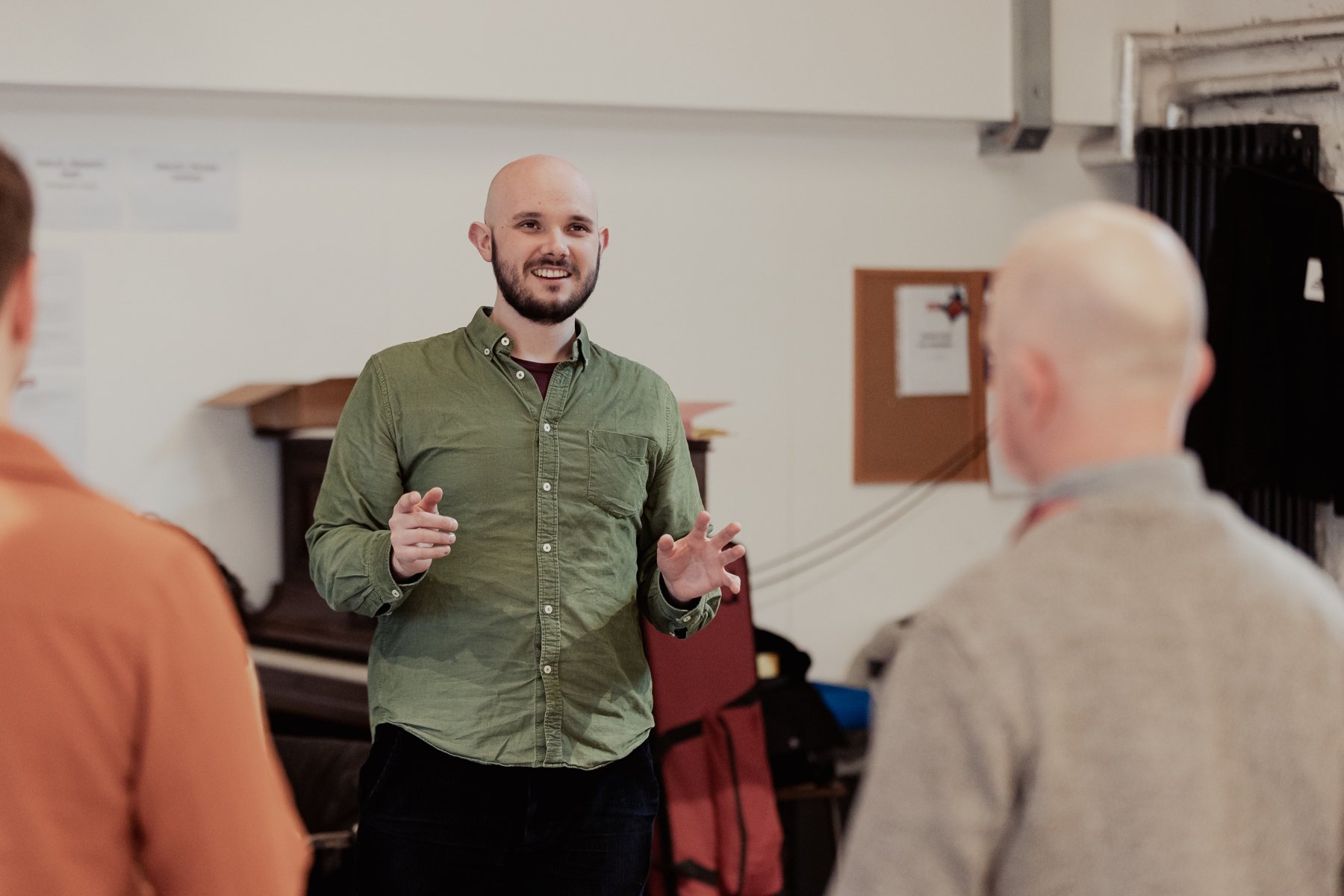IN CONVERSATION WITH JACK DREWRY
Can you tell us a bit about your work as a composer and sound designer?
It’s amazing how much sound influences how we feel. For example compare the annoying buzz of a faulty fridge to the soothing sound of running water and birdsong. My job as a composer and sound designer is to curate the different sound elements of the show that enhance the feelings in the story and communicate meaning. I primarily work in a collaborative rehearsal process and bring my music and sound to the rehearsal room as a storytelling tool. Often I’ll start the early rehearsals looking for a sound and music language to support the story and define what it should feel like to watch the show. In the rest of the rehearsals I collaborate with the director, the cast, and the whole creative team to refine the ideas and build the soundscape.
What do you think the music and a capella singing brings to the show and the storytelling?
There’s something about music that connects everyone to their memories. We all remember the first piece of music we bought: it might have been a vinyl, a tape, a CD or even an MP3. Whenever we revisit that music it acts as an anchor to remind us of that time in our lives and those memories can be surprisingly vivid. In this way music has been shown to improve the lives of people living with dementia as it helps them reconnect to their past. We use music in the show to explore the characters memories, and therefore their identity.
“The voice is the most versatile and expressive of all the musical instruments, it can swap between being silly, funny, shocking and beautiful in a matter of seconds. This is very useful in a show as dynamic as If You Fall.”
The music in the show includes a lot of a capella singing - do you enjoy working with the voice only and how is it to work with a cast of six on this?
Choral singing is something I’ve only ever used for selected moments in past shows, so it’s been a really exciting challenge on this show working with the voice as the only instrument. I usually write music on a piano but I’ve learnt a lot from the brilliant composer, Verity Standen, who worked on the show in the Research and Development phase. Inspired by her I used my own voice to write most of the music for this show. Having six different voices, with a wide range of characteristics, makes both the harmony and the texture of the music very rich and exciting.
Can you tell us a bit about your process of writing / composing, and collaborating with a team of creatives?
Ahead of this final phase of rehearsal I chatted with Nir and Helena about how we could develop the ideas from the Research and Development period by finding musical themes and influences for each of the characters that track throughout the show. Although most of the music was written and arranged ahead of the rehearsal period, I also find that having the flexibility to write and tweak pieces during rehearsals is really valuable in a devising process. It allows me to adapt to the latest version of scenes in the room.
One exciting collaboration that’s emerged in the last few days is a piece of music I found from the ‘40s with a dance that went with it. Deb Pugh, our movement director, used some of those dance moves in a sequence for the show. We’re in constant dialogue in the rehearsal room between the creative team, adapting and working together to build a shared language. Although I like to write in the room I do also work on the music at home and one piece I wrote was a really emotional experience for me. My grandmother died in a hospice a couple of years ago and although she was known as Shosh to her friends her official name was Margaret. When you watch the show you’ll see why that was a demanding song to write but it was also a very cathartic and rewarding process.



